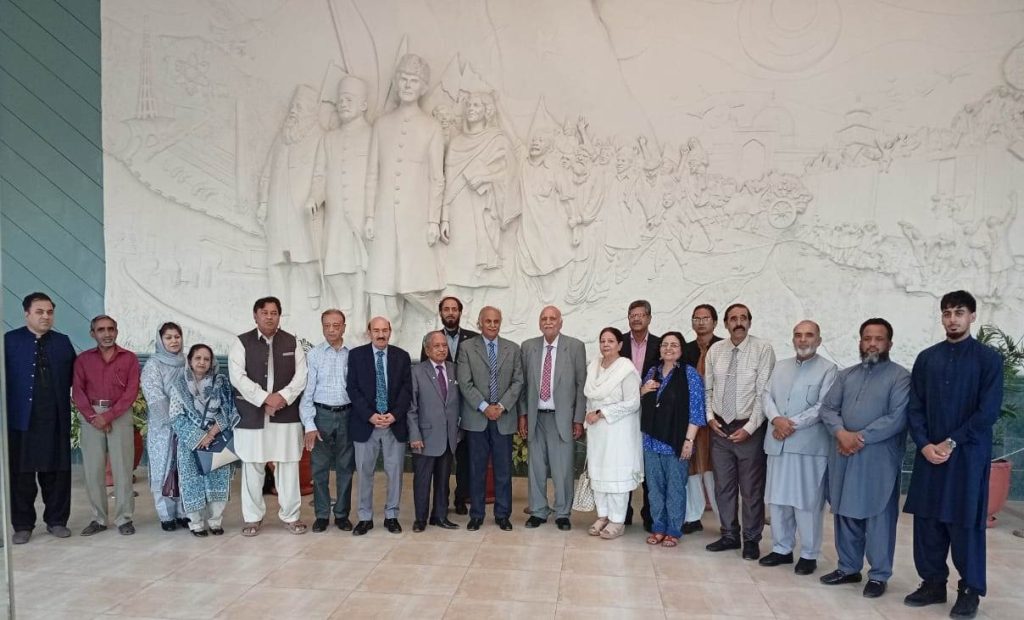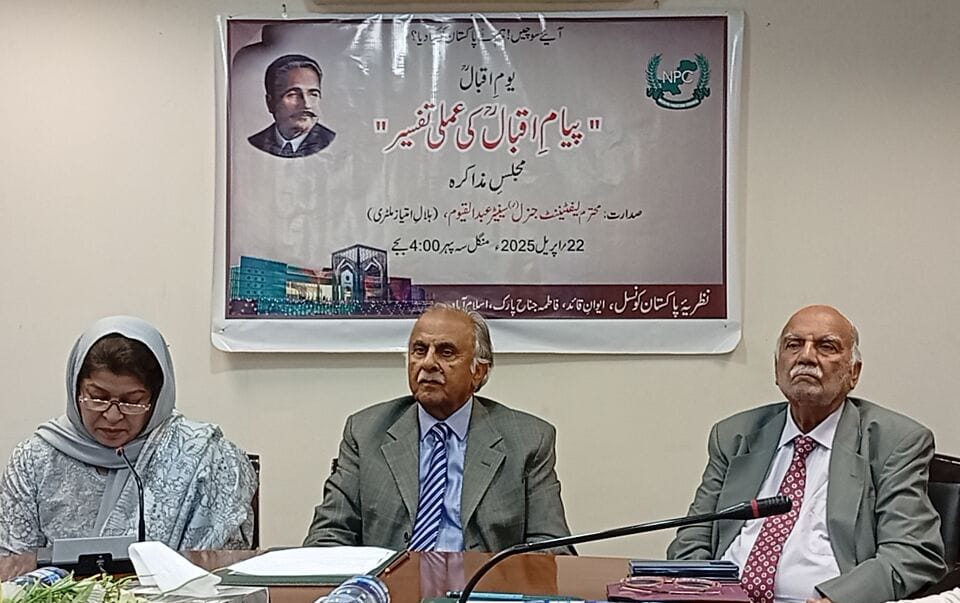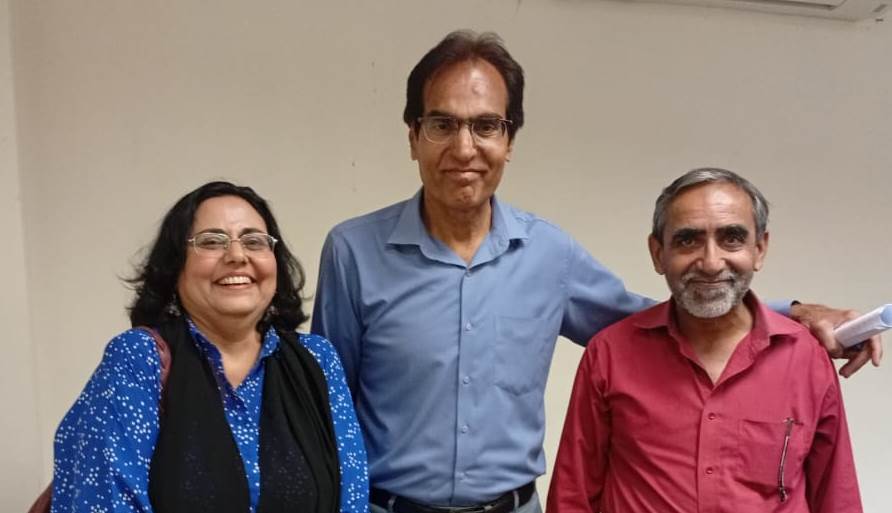Islamabad, Nazriya Pakistan Council (NPC) HQ – The Ideology of Pakistan Council hosted a thought-provoking dialogue at Aiwan-e-Quaid on the “Practical Manifestation of Iqbal’s Philosophy,” drawing participation from scholars, military veterans, poets, educators, and literary figures. The event was presided over by Lieutenant General (R) Senator Abdul Qayyum, who hailed Allama Iqbal as a visionary thinker whose poetry and philosophy guided the creation of Pakistan and continue to shape its ideological foundation. “It is an honor to discuss Iqbal’s enduring wisdom in the presence of distinguished educators,” he noted. He emphasized the critical role of Pakistan’s military in safeguarding both the geographical and ideological borders of the nation.

نظریہ پاکستان کونسل ٹرسٹ میں مذاکرہ کے مہمان خصوصی کا شرکاء کے ہمراہ گروپ فوٹو
Senator Qayyum reflected on Sir Syed Ahmed Khan’s contributions in founding Aligarh Muslim University and underlined that the division between Hindus and Muslims was more social than religious. He reiterated that Iqbal’s thought was a response to historical oppression, and the foundation of a separate Muslim identity.

چیئرمین میاں محمد جاوید، صدر محفل سینیٹر عبدالقیوم و مہمان خصوصی ماہر تعلیم فریدہ یاسمین
نظریہ پاکستان کونسل ٹرسٹ کے سٹیج پر
Chairman of Nazriya Pakistan Council, Mian Muhammad Javed, appreciated the speakers and highlighted Iqbal’s profound influence in awakening the Muslim world. “Today, we need the spirit of Iqbal’s ‘Sajda-e-Momin’—a revival of purpose and pride,” he remarked. Keynote speaker and renowned academic Farida Yasmeen praised Iqbal’s intellectual legacy, noting his poetry is complex yet transformative, teaching selfhood and awakening inner strength.
Razeena Alam Khan, Chairperson of NPC’s educational initiative “Taleem Network Pakistan,” stressed the importance of simplifying Iqbal’s message for young minds, especially through multilingual access to his works. Senior committee member Dr. Afzal Babar shared progress on NPC’s community model schools in Bhara Kahu, aimed at educating out-of-school children.
Poet Nasim Ahmed Usmani lamented the disappearance of Iqbal’s prayer poem from school curricula, calling for its revival. He also criticized the lack of children’s educational channels in today’s media landscape. Rubina Imtiaz Qizilbash and Dr. Sajid Khakwani highlighted the emotional and ideological connection to Iqbal’s work, emphasizing its relevance in nation-building.
 The session featured soulful poetry by Farukhunda Shamim and Khurram Khaliq, followed by a heartfelt dua for Iqbal’s exalted rank. The event host, Hamid Qaiser, opened the discussion urging attendees to reflect deeply on Iqbal’s lectures, especially The Reconstruction of Religious Thought in Islam, as a blueprint for ethical living.
The session featured soulful poetry by Farukhunda Shamim and Khurram Khaliq, followed by a heartfelt dua for Iqbal’s exalted rank. The event host, Hamid Qaiser, opened the discussion urging attendees to reflect deeply on Iqbal’s lectures, especially The Reconstruction of Religious Thought in Islam, as a blueprint for ethical living.
